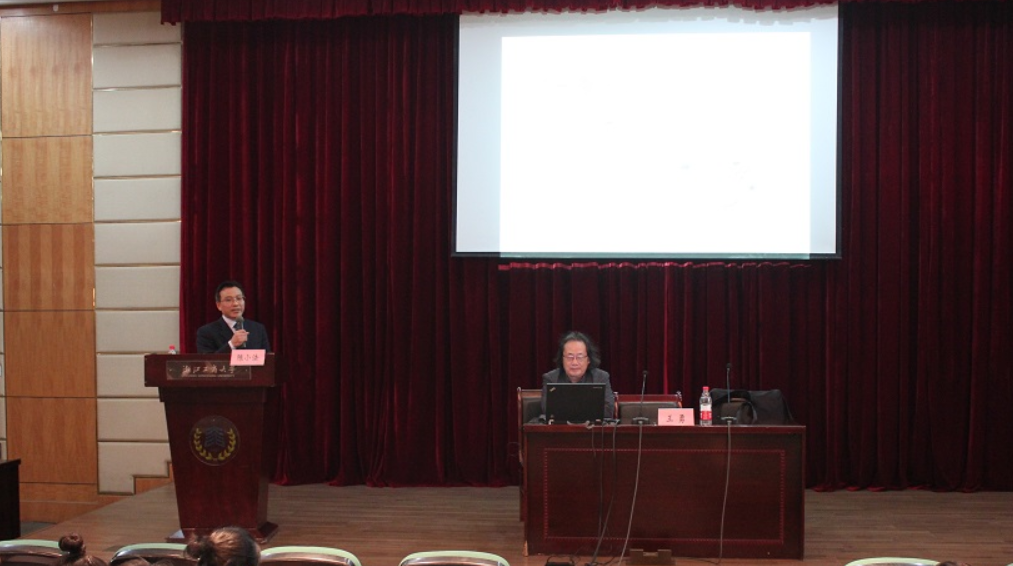|
On 24 November 2016, in the Symposium of Hundred Schools of Thoughts and Encyclopedias ,which was co-hosted by the Graduate School, School of Oriental Language and Culture, Student Union and other departments of Zhejiang Gongshang University, distinguished scholar Professor Wang Yong presented a seminar on One Belt One Road and Sino-Japanese Relations to students of Zhejiang Gongshang University at the Lecture Hall of Library. Professor Wang is now Dean of Japanese Culture Institute of Zhejiang University, holding various visiting posts at world class universities and academic institutions such as Columbia University, Peking University and Waseda University.
Notwithstanding frosty bilateral relations between China and Japan, the nationals of these two countries in fact get along with each other pretty well. Professor Wang pointed it out at the beginning of lecture. Japanese still truly love traditional Chinese culture. The number of Chinese tourists visiting Japan is on the increase consistently. The consumption power of them in Japan is so impressive to Japanese that there is a special term bakugai (explosive purchasing) for it. Considering Japanese thousand year-long fascination for Silk Road, Professor Wang had no surprise that Japan still found itself in the gripes of Silk Road culture which was evinced by large-scale overwhelmingly popular documentaries and seemingly unending stream of television programs and museum exhibitions attracting large crowds of Japanese. The NHK Special: The Silk Road was the one-of-a-kind legendary NHK video series that kicked off ŌĆ£silk road feverŌĆØ in Japan. The first serial of was a joint-project between NHK and CCTV in China. It marked the first-ever joint Sino-Japanese television program production in history.
Nonetheless, Professor Wang wondered if the Japanese were skeptical of the New Silk Road (One Belt One Road) policy or even hostile against the geostrategic challenges and opportunities of economic development. They contextualized this westward policy of China through the lens of skepticism. Professor Wang believed that it was a cultural dilemma. Japanese love traditional Chinese culture. They regard themselves as legitimate successors of oriental culture and look down upon contemporary China. He advocated the active adoption of a cultural approach for the rationalization of New Silk Road initiative, thereby softly persuading Japan to commit to upholding New Silk Road economic belt as a centerpiece of China's economic diplomacy. Through mutual cultural understanding, economic policy can evolve into a story of modern logistics and Sino-Japanese co-operation. Through mass media, the open forums and discussions on such historical legends as Monk Jianzhen braving all the hardships to make his sea voyages to Japan, the great poet Bai Juyi and the pragmatic Confucian Zhu Shanshui can mitigate their hostility and intention to maneuver furiously for limiting the impact of China's New Silk Road policy.
In conclusion, Professor Wang quoted "intelligentsia should have inflexible will and unswerving determination in preparation for a long way to go " from the Analects of Confucius (Lunyun) for encouraging Zhejiang Gongshang University students to shoulder the responsibility to develop Chinese culture and to achieve the great rejuvenation of China in contemporary era.

|
